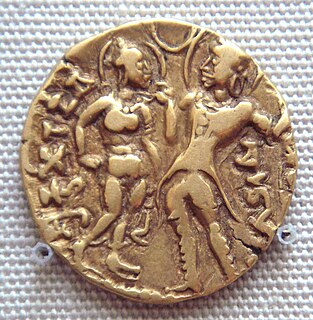This page is based on this
Wikipedia article Text is available under the
CC BY-SA 4.0 license; additional terms may apply.
Images, videos and audio are available under their respective licenses.

Athanasius of Alexandria, also called Athanasius the Great, Athanasius the Confessor or, primarily in the Coptic Orthodox Church, Athanasius the Apostolic, was the 20th bishop of Alexandria. His intermittent episcopacy spanned 45 years, of which over 17 encompassed five exiles, when he was replaced on the order of four different Roman emperors. Athanasius was a Christian theologian, a Church Father, the chief defender of Trinitarianism against Arianism, and a noted Egyptian leader of the fourth century.
Eusebius of Nicomedia was the man who baptised Constantine the Great. He was a bishop of Berytus in Phoenicia. He was later made the see of Nicomedia, where the imperial court resided. He lived finally in Constantinople from 338 up to his death.

The First Council of Nicaea was a council of Christian bishops convened in the Bithynian city of Nicaea by the Roman Emperor Constantine I in AD 325.

Year 319 (CCCXIX) was a common year starting on Thursday of the Julian calendar. At the time, it was known as the Year of the Consulship of Constantinus and Licinius. The denomination 319 for this year has been used since the early medieval period, when the Anno Domini calendar era became the prevalent method in Europe for naming years.
Alexander of Constantinople was a bishop of Byzantium and the first Archbishop of Constantinople. Scholars consider most of the available information on Alexander to be legendary.
The Councils of Sirmium were the five episcopal councils held in Sirmium in 347, 351, 357, 358 and finally in 375 or 378. The third—the most important of the councils—marked a temporary compromise between Arianism and the Western bishops of the Christian church. At least two of the other councils also dealt primarily with the Arian controversy. All of these councils were held under the rule of Constantius II, who was sympathetic to the Arians.

Saint Lucian of Antioch, known as Lucian the Martyr, was a Christian presbyter, theologian and martyr. He was noted for both his scholarship and ascetic piety.
Semi-Arianism was a position regarding the relationship between God the Father and the Son of God, adopted by some 4th century Christians. Though the doctrine modified the teachings of Arianism, it still rejected the doctrine that Father, Son, and Holy Spirit are co-eternal, and of the same substance, or con-substantial, and was therefore considered to be heretical by many contemporary Christians. Semi-Arianism is a name frequently given to the Trinitarian position of the conservative majority of the Eastern Orthodox Church in the 4th century, to distinguish it from strict Arianism.

St Alexander I of Alexandria, 19th Pope of Alexandria & Patriarch of the See of St. Mark. During his patriarchate, he dealt with a number of issues facing the Church in that day. These included the dating of Easter, the actions of Meletius of Lycopolis, and the issue of greatest substance, Arianism. He was the leader of the opposition to Arianism at the First Council of Nicaea. He also is remembered for being the mentor of the man who would be his successor, Athanasius of Alexandria, who would become one of the leading Church fathers.
Subordinationism is a belief that began within early Christianity that asserts that the Son and the Holy Spirit are subordinate to God the Father in nature and being. Various forms of subordinationism were believed or condemned until the mid-4th century, when the debate was decided against subordinationism as an element of the Arian controversy. In 381, after many decades of formulating the doctrine of the Trinity, the First Council of Constantinople condemned Arianism.
The Arian controversy was a series of Christian theological disputes that arose between Arius and Athanasius of Alexandria, two Christian theologians from Alexandria, Egypt. The most important of these controversies concerned the substantial relationship between God the Father and God the Son.
Secundus of Ptolemais was a 4th-century bishop of Ptolemais, excommunicated after the First Council of Nicaea for his nontrinitarianism.

Pope Peter I of Alexandria, 17th Pope of Alexandria & Patriarch of the See of St. Mark. He is revered as a saint by the Coptic Orthodox Church, the Eastern Orthodox Church, and the Roman Catholic Church.
The Council of Aquileia in 381 AD was a church synod which was part of the struggle between Arian and orthodox ideas in Christianity. It was one of five councils of Aquileia.
Palladius of Ratiaria was a late 4th century Arian Christian theologian, based in the Roman province of Dacia in modern Bulgaria.

Baucalis is a section in Alexandria, Egypt where St. Mark was reported to have been martyred, along with the historic location of his martyrium. It is also where Arius was a Christian presbyter and priest.









